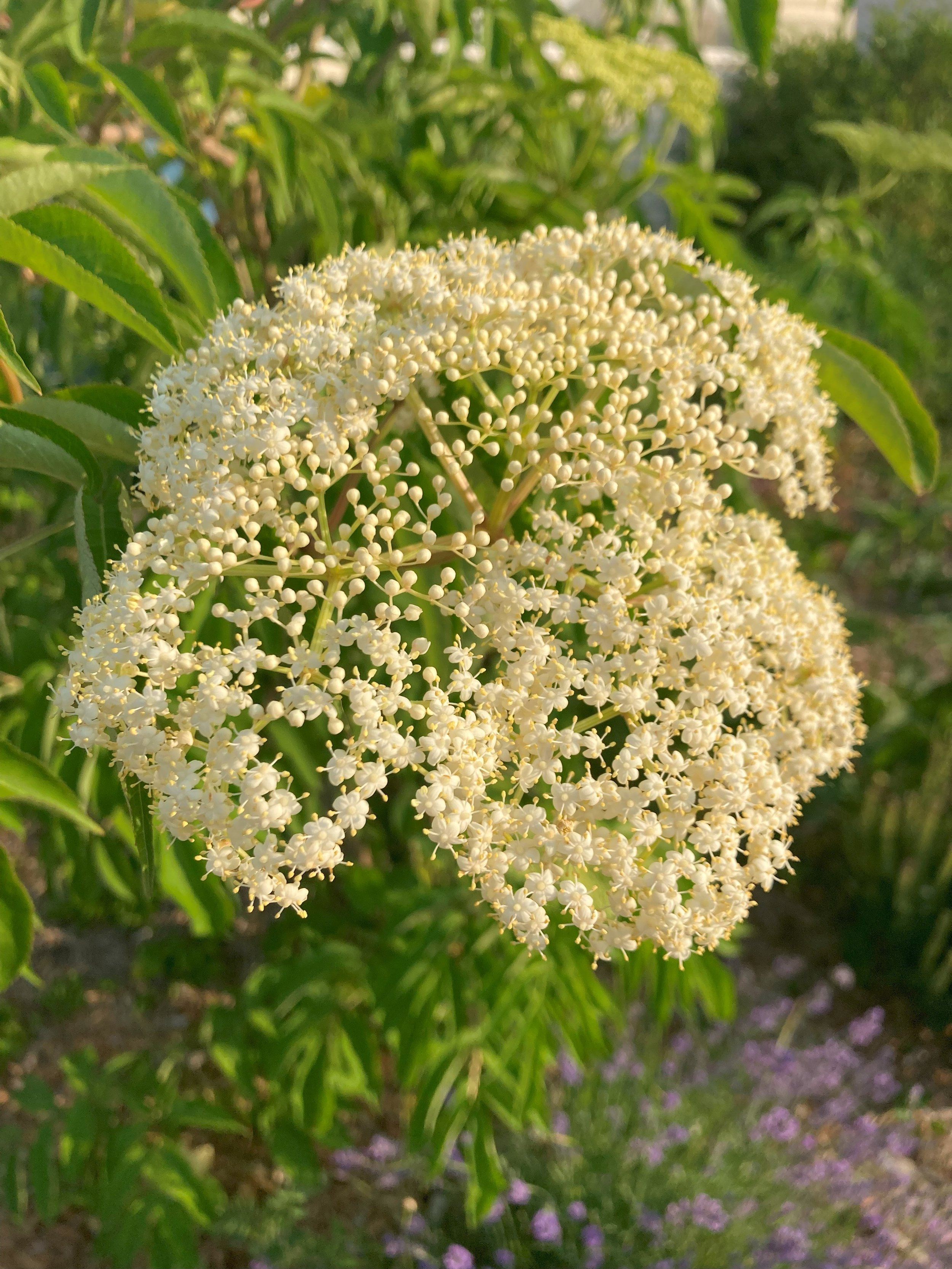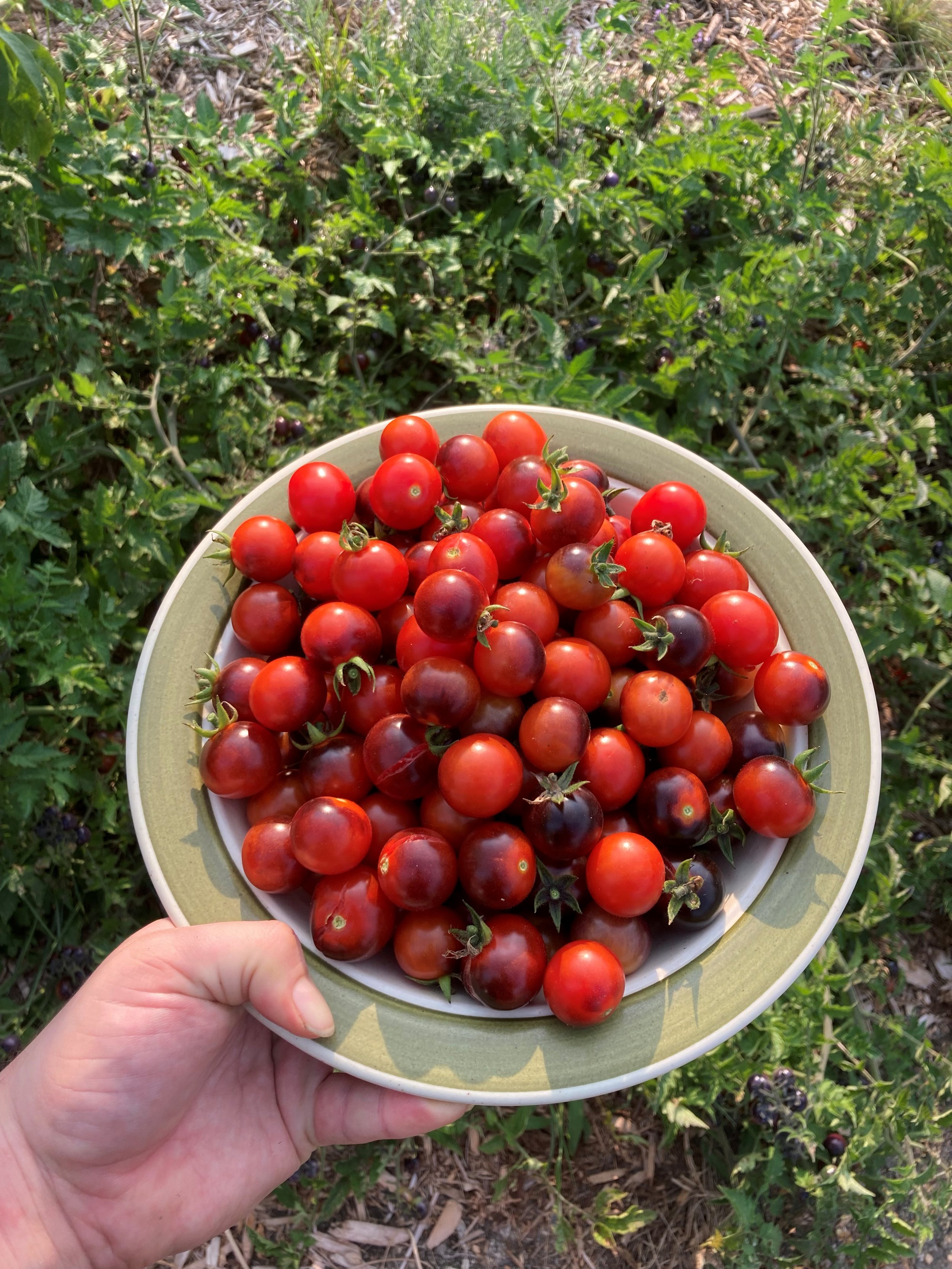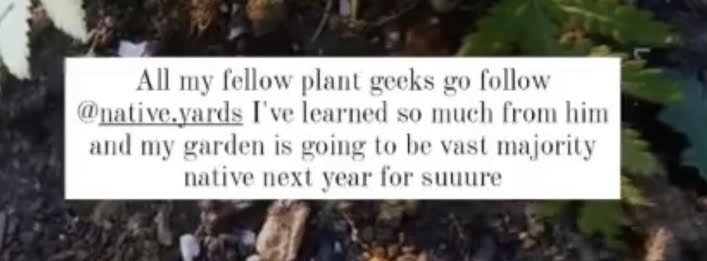
Want your yard to be a self-sustaining ecosystem that’s good for you AND the planet but don’t know where to start?
Get expert guidance, personalized recommendations, and valuable resources to create a beautiful and thriving ecological garden.
Be empowered to work with nature instead of against it
with simpler and healthier management of pests, plant diseases, and weeds
Feel confident that you have a place to grow healthy and abundant food for yourself and your family
Use your yard to help save declining wildlife
With every passing season, you’ll see more biodiversity in your yard
How does Eco-Garden Consulting work?
1 - Fill out the Client Intake Form:
Start by providing some info about your location, yard specifications, and preferences.
2 - Consultation (in person & virtual available):
For in-person clients, we'll arrange a visit to your garden to assess your current situation, address any questions you have, troubleshoot, and kick-start your action plan.
For virtual clients, we'll connect via Zoom to achieve the same goals.
3 - Deliverables (customized info you’ll receive after the consultation):
Suggested Plant List
Prioritized Task List
Common Invasive Plant List
DIY Installation Instructions
Soil Health Recommendations
4 - Bonuses
You’ll receive free copies of The Eco-Garden Workbook and The Composting Handbook to reference and guide you while you’re working on your ecological garden
Consulting clients also receive a 10% discount on native plants (local only) and seeds (available to anyone) from Native Yardening
Spots are limited!
Why should I invest in my garden?
-
Planting species native to your area means your garden will require less maintenance and resources.
Improving soil health will grow healthier plants without wasting money on fertilizers and chemical sprays.
-
Healthy soil can retain enough water to grow plants even during times of drought!
Native plants need less irrigation than foreign species because they evolved in your climate.
A regenerative garden uses much less water than a lawn or traditional garden.
-
The UN estimates we have about 7 years left before we reach the point of no return regarding climate change.
Regenerative gardening directly helps combat the climate crisis by improving the ability of plants and soil to sequester CO2 from the atmosphere.
-
Food prices are increasing while both food supply and nutritional value are decreasing.
Growing food for yourself and your family will save you tons of money.
It’s an essential skill to have in an uncertain world.
-
Whether you’re growing vegetables for dinner or cut flowers for your business, higher yields are always better.
Regenerative practices greatly outcompete traditional practices in crop yields.
-
We’re currently living in one of the largest mass extinctions in the earth's history.
Habitat loss is a significant contributor to wildlife decline.
Insects are the foundation of the food web. When we kill them with pesticides and herbicides, it disrupts the whole ecosystem.
Gardening regeneratively means managing the holistic system.
It creates enough abundance for you and the wildlife.
Who is Native Yardening?
Hey, I’m Tory, the owner and operator of Native Yardening. I’m an ecologist and a landscape consultant from Northern Kentucky.
I’ve been a gardener for 10+ years and I have a Master of Science degree in sustainable design.
During my graduate studies, I received landscape architecture training and researched the environmental impacts of native vs foreign plant species and soil health.
I was also awarded master's certificates in Design of Resilient Communities and Sustainable Leadership.
I’ve also received my certification in Regenerative Soil Science by Matt Powers.
I was an art teacher for 4 years and I’m passionate about education. People have always told me I have a gift for making big complex concepts easy to understand.












